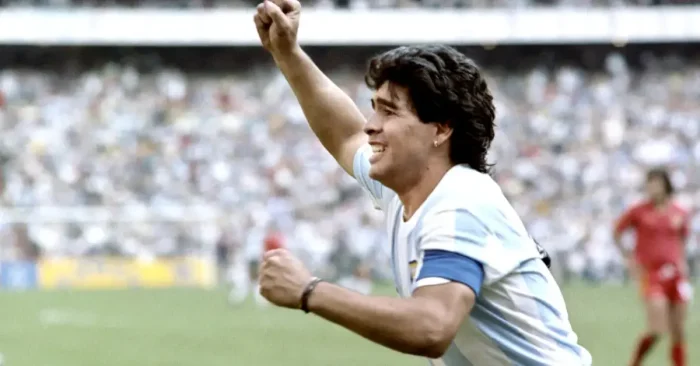Diego Maradona Career and Life Style
Early Life and Background
The Diego Maradona biography begins with his birth on October 30, 1960, in Villa Fiorito, Buenos Aires, Argentina. Growing up in a poor neighborhood, he displayed extraordinary football talent from a young age. Inspired by local legends and supported by his family, Maradona began playing football on the streets, quickly earning recognition for his dribbling skills, speed, and creativity. These early experiences laid the foundation for Diego Maradona biography and his journey to becoming one of the greatest footballers in history.
Rise to Fame in Diego Maradona Biography
Maradona rose to international fame in the late 1970s, making his professional debut with Argentinos Juniors at age 16. He soon moved to Boca Juniors, where his performances captivated fans and media. His exceptional skill led to his transfer to European clubs, including Barcelona and Napoli. The peak of his rise came during the 1986 FIFA World Cup, where he led Argentina to victory, cementing his status as a football legend. This rise marked a key chapter in Diego Maradona biography, showcasing his talent, determination, and global impact.
Football Career and Achievements
A major highlight of Diego Maradona biography is his stellar football career. Maradona won numerous club titles, including domestic championships with Boca Juniors and Napoli. Internationally, he guided Argentina to a FIFA World Cup victory in 1986 and reached the finals in 1990. Known for his incredible dribbling, vision, and goal-scoring abilities, Maradona achieved global acclaim and remains one of the most celebrated figures in football history. His influence extended to inspiring millions of fans and future athletes worldwide.
Playing Style and Influence
Diego Maradona biography emphasizes his unique playing style, combining extraordinary ball control, agility, and strategic thinking. Renowned for his dribbling and precise passing, he could navigate tight defenses with ease. His creativity on the field and ability to perform in critical moments earned him the nickname “The Golden Boy.” Influenced by Argentine football culture and his challenging upbringing, Maradona became a symbol of talent, resilience, and passion, inspiring generations of footballers globally.
Personal Life
The personal side of Diego Maradona biography highlights his complex life off the pitch. He faced health and addiction challenges but remained dedicated to football. Maradona was married and had children, with his family often in the public eye. He engaged in charitable activities and maintained strong ties to his home country. Despite personal struggles, Maradona’s charisma and love for football made him a beloved figure around the world.
Awards and Recognition
Diego Maradona biography includes numerous accolades for his football achievements. He was named FIFA Player of the Century alongside Pele and received multiple individual awards for his performances. His club and international successes earned him global recognition as one of the greatest athletes in sports history. Maradona’s contributions to football and his larger-than-life persona have made him an enduring icon.
Legacy and Cultural Impact
The legacy of Diego Maradona biography focuses on his influence on football and global culture. His skill, leadership, and passion inspired countless players and fans, while his life story reflects resilience and talent overcoming adversity. Maradona’s cultural impact extends beyond sports, symbolizing hope, excellence, and the power of football to unite people. His achievements and charisma have left a lasting imprint on the world of football and popular culture.
Frequently Asked Questions (FAQs)
When was Diego Maradona born?
Diego Maradona was born on October 30, 1960, in Villa Fiorito, Buenos Aires, Argentina.
How did Diego Maradona become famous?
He became famous for his exceptional football talent, starting with Argentinos Juniors and Boca Juniors, and leading Argentina to World Cup victory in 1986.
What are Diego Maradona’s major achievements?
He won the FIFA World Cup in 1986, domestic titles with Napoli and Boca Juniors, and received global recognition as one of the greatest footballers ever.
What was Diego Maradona’s playing style?
He was known for extraordinary dribbling, vision, precise passing, and creativity, making him one of the most skillful and influential footballers in history.
What is Diego Maradona’s legacy?
Maradona’s legacy is his lasting influence on football, inspiring generations of players and fans worldwide, and becoming a cultural icon of excellence and resilience.






